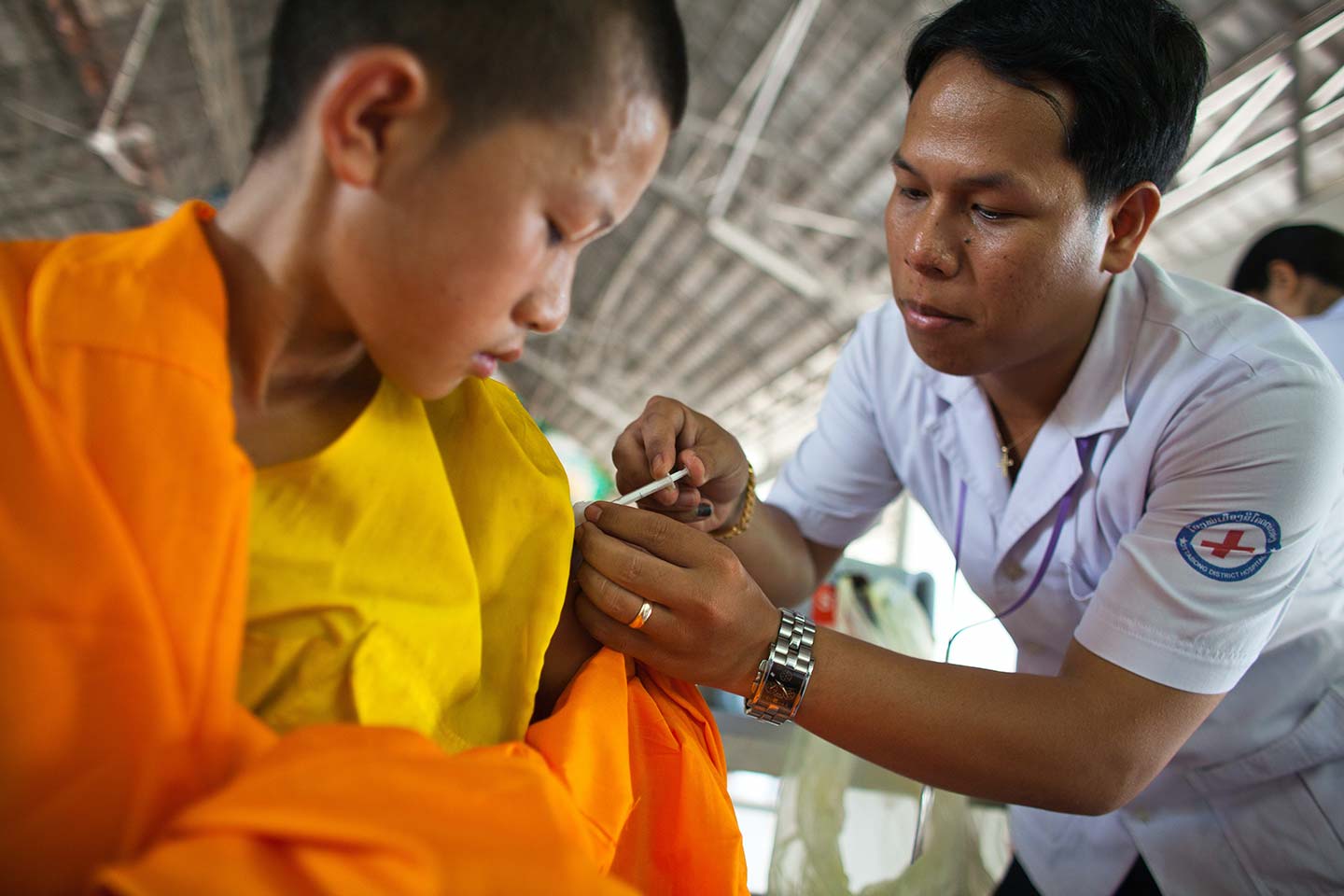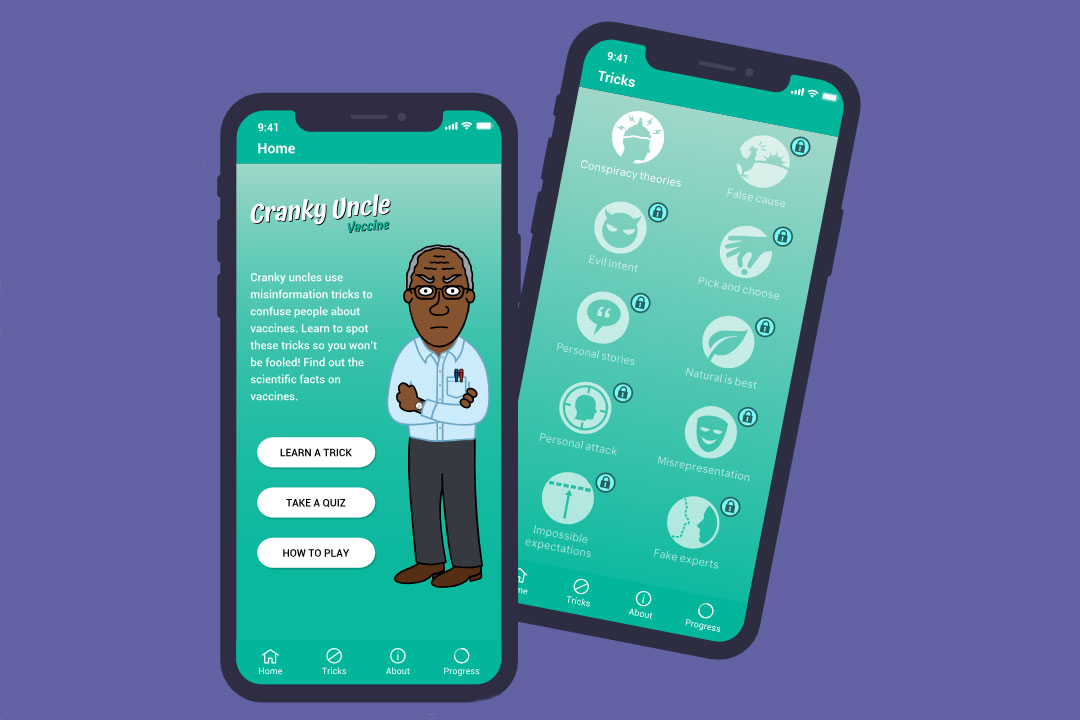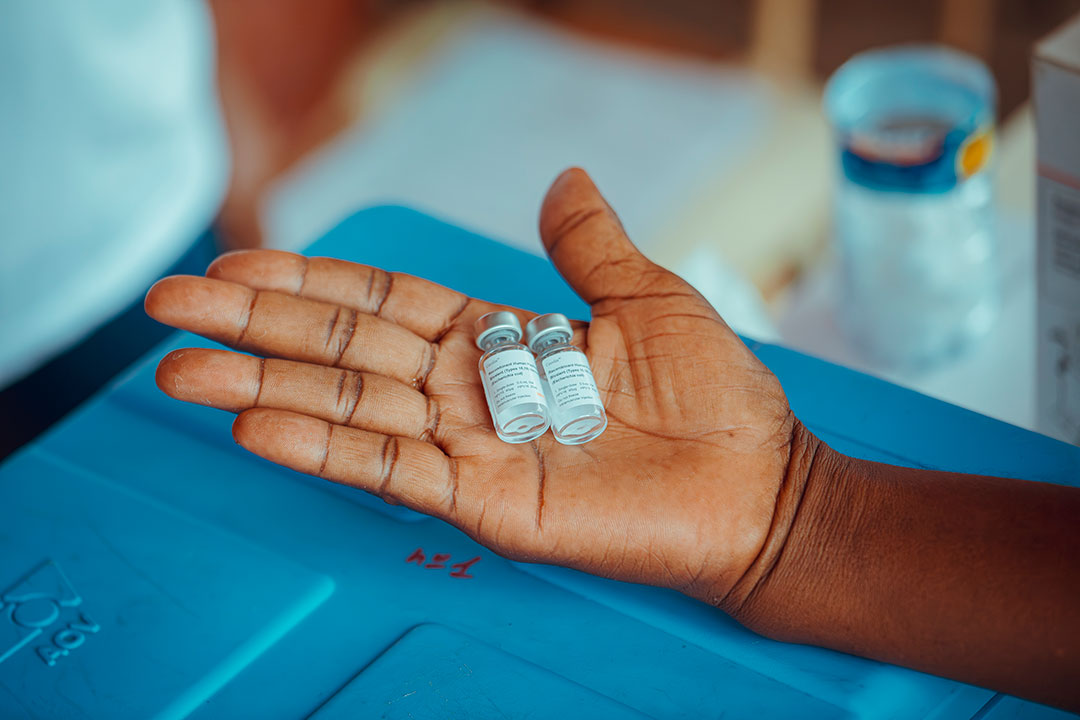How vaccination can reduce sepsis and save millions of lives
Many of the infections that can lead to sepsis are becoming resistant to antibiotics, which means that preventing them by vaccination is critical.
- 9 September 2020
- 4 min read
- by Priya Joi

The power of vaccination to save lives by preventing infectious diseases like pneumonia and meningitis is demonstrated year after year. Between 2000 and 2015, the pneumococcal conjugate vaccine and the Haemophilus influenzae type b (Hib) vaccine have collectively saved the lives of more than 1.4 million children under five years. But these vaccinations have a major indirect benefit, not only do they prevent these diseases, but by stopping diseases they also reduce rates of sepsis often caused by infections, such as meningitis, pneumonia and pertussis.
The World Health Organization (WHO) and the Global Sepsis Alliance are hosting an event ahead of World Sepsis Day on 13 September, to raise awareness and stimulate action. Urgent action is needed because sepsis is not generally talked about as a global health threat in the way that cancer is, yet one in five people who die in the world every year are killed by sepsis. Sepsis is when the body has a deadly response to infection - the immune system triggers an overwhelming reaction that eventually overwhelms the body causing organ failure and, potentially, death. Sepsis kills more than a fifth of people who develop it, and it is a major challenge in low- and middle-income countries. According to the 2017 Global Burden of Disease Report, almost half of all sepsis cases worldwide were in children, with 20 million cases and 2.9 million global deaths in children under the age of five.
But increasingly many of the infections that can lead to sepsis are becoming resistant to antibiotics, which means that preventing them by vaccination is critical.
Reducing the need for antibiotics
Since vaccination prevents infections and reduces the need for antibiotics, it is helping slow antimicrobial resistance - the fewer antibiotics are used, the less this usage will drive the development of resistance. A study published in 2016 estimated that universal coverage with the pneumococcal vaccine could prevent 11.4 million days of antibiotic use per year in children younger than five years.
But increasingly many of the infections that can lead to sepsis are becoming resistant to antibiotics, which means that preventing them by vaccination is critical.
This indicates an urgent need for research and development into new antibiotics, and also into new vaccines - for example, a vaccine for Group B Streptococcus is currently in development, which could potentially save 150,000 newborn lives every year and prevent up to 260,000 cases of maternal and newborn sepsis.
Have you read?
Increasing the reach of vaccination
In the meantime, the potential to reduce deaths by sepsis through vaccination shows how important it is to widen the reach of vaccines even further. More children are being immunised than ever before: since Gavi started in 2000, it has helped to immunise more than 760 million children - and prevented more than 13 million deaths. Yet there is still a significant way to go, because in the 68 countries that Gavi supports, 10.6 million children still don’t receive a single dose of even the most basic vaccines.
The COVID-19 pandemic has of course challenged the provision of even the most basic health services. The suspension of immunisation services through lockdowns aimed at preventing the stop of the coronavirus risks causing 84 vaccine-preventable deaths as people are unprotected from other deadly diseases.
According to WHO, around 80 million children in their first year of life could risk vital vaccinations because of COVID-19. This will especially devastate communities with few resources, poor access to health and living in inadequate housing with limited access to water and sanitation - these are the people who are already at a high risk of infection with sepsis. This is why it is crucial to get routine immunisation programmes back on track, and to ensure everything is done to reach those millions of zero-dose children who are yet to receive a single vaccine.








